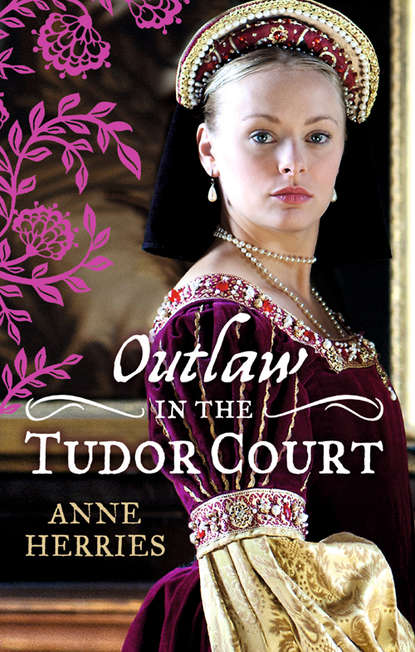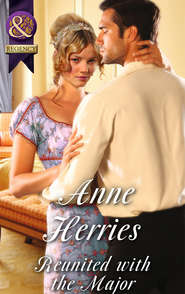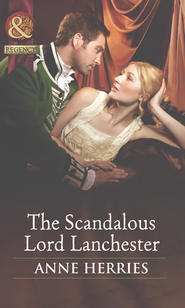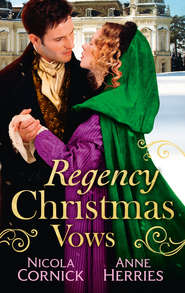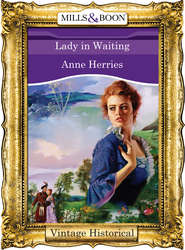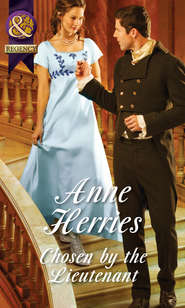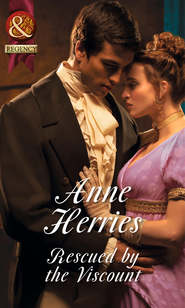По всем вопросам обращайтесь на: info@litportal.ru
(©) 2003-2024.
✖
OUTLAW in the Tudor Court: Ransom Bride / The Pirate's Willing Captive
Настройки чтения
Размер шрифта
Высота строк
Поля
His real quarrel, however, was with Rachid the Feared One, a man of such cruelty that his name was well earned. The pitiful creatures that served at the oar in his fleet were wretched indeed, few surviving more than three years of beatings and torture.
Lorenzo’s eyes darkened as he remembered one such object of pity, a man who had survived by chance. He would never rest until Rachid was brought to justice, either at the end of a rope or by the sword. He had vowed it at the deathbed of the man who had adopted him, and one day he would keep his promise.
He regretted that he had lost one of his galleys in this struggle, for men must have died, though their comrades would have saved all they could. Rachid had also lost men and galleys, but for him life was cheap. He would replenish his oarsmen from the slave markets of Algiers or simply send a raiding party to one of the islands of the Aegean to capture men, women and children. The men would serve in his galleys, the women and children would be sold as house slaves—a trade that revolted all good Christian men and women.
It would be interesting to hear what plans were afoot in Rome, for he would welcome any fight that lead to the demise of such men. Rachid paid tribute to the Sultan of the Ottoman Empire and was free to pillage and murder as he would in these waters. If the power of the Turks could be curbed, it would make his enemy that much more vulnerable.
But even if he had to enter his very stronghold to do it, one day he would find and kill the man he hated.
‘It is so good to see you, sir.’ Kathryn kissed the cheek of their visitor. Lord Mountfitchet was almost as dear to her as her own father, and she looked forward to his visits. They had been rare enough since Dickon was stolen all those years ago. ‘Did you see the man of whom Father told me—Suleiman Bakhar?’
‘Yes, we spoke with him at length,’ Lord Mountfitchet told her with a sigh. ‘But there is no news. He has made inquiries for us, for, as you must know, his influence is far reaching in that part of the world. However, he has not given up hope—though he says that it would be rare for a man to survive that long in the galleys. It depends what happened to Richard when he was taken. If he was sold as a house slave…he could be anywhere.’
‘We must pray that he was,’ Kathryn’s father said, shaking his head over the sad business. ‘Otherwise…’ He looked sorrowful. For his own part he believed that Richard Mountfitchet must be long dead, but his friend had refused to give up his search and he did not blame him. If it had been his own son or—God forbid—Kathryn, he might have felt the same.
‘I do not believe that Dickon is dead,’ Kathryn said. ‘I am sure that I would have felt it in here.’ She pressed her clenched hands to her breast as if in prayer. ‘You must go on searching for him, sir.’
‘Yes, Kathryn.’ Lord Mountfitchet smiled at her. She was lovely with her dark red hair and green eyes, a sweetness about her mouth that was testament to her tender nature, but more than that she had helped him to retain the hope of his son being restored to him one day. ‘That is why I have come to stay with you for a while. It is in my mind to visit Venice and Cyprus. As you know, I have recently begun to import wine from Cyprus and Italy to this country. I began to take an interest in the region when I started my search for Richard, and I am thinking that I might decide to live out there in the future.’
‘You would leave England?’ Kathryn stared at him in surprise; she had heard nothing of this before now. ‘But what of your estate?’
‘The house and land could be left to my agents to administer. It might be that I shall want to return one day, but there is little for me here now. In Elizabeth’s England, Catholics like myself and your father are not given an equal chance. I mean no disrespect to the Queen, for I know she must take the advice of her ministers—and they live in fear of a Catholic plot against her. I have taken no part in such plots nor would I, for she is our rightful Queen, but there is nothing to keep me here. If our poor Dickon lives, he must be somewhere in that region of the world—perhaps Algiers, or Constantinople.’
‘We shall miss you,’ Kathryn said and her throat caught with tears at the thought that she might never see him again. ‘How shall we know if there is news of Dickon?’
‘I should write to you, of course,’ he said and smiled at her. ‘But if I live there I shall need a good friend in this country to keep an eye on my affairs. I have asked Sir John if he would join me in this venture of importing wines, and he has been good enough to agree.’
Kathryn looked at her father, who confirmed his satisfaction with the arrangement. ‘Then at least we shall hear from you sometimes.’
Lord Mountfitchet nodded, looking at her thoughtfully. ‘Your father is too busy to accompany me on this voyage of exploration, Kathryn, but I would like him to have firsthand knowledge of what I intend to do there. He has suggested to me that you might accompany my party. My sister, Lady Mary Rivers, was widowed a few months past and has agreed to make the journey with me, for she has nothing to keep her here either and we shall be company for each other in our dotage.’
‘You are not yet in your dotage, sir!’
‘No, you are right—but it comes to us all in time, Kathryn. Mary and I get on well enough, and I have no wish to marry again. She thinks me a fool to search for Dickon, but keeps a still tongue on the subject. She will be your chaperon on the journey, and I believe we shall find a suitable guardian to accompany you on the return journey—unless you meet someone that you would wish to marry.’
‘Oh…’ Kathryn looked at her father, a faint colour in her cheeks.
‘I had it in mind to look about for a suitable husband for you, daughter,’ her father said, and paused. ‘But Lord Mountfitchet is right. There is little opportunity for Catholics in this country these days. If you should chance to meet someone suitable who you liked while on your travels, I should be pleased. I know that Mary and Charles would take care of you and make sure that any suitor was worthy of you before advising me. Indeed, I shall probably make the journey to fetch you home myself. If I were not so busy at the moment, I would come with you. Your brother Philip will be home from Oxford next year and, if I cannot come myself, he will be happy to take my place, for he longs to travel.’
‘Yes, I know.’ Kathryn gave him a look of affection, for she was fond of her brother. ‘Would you truly not mind if I went with Lord Mountfitchet and Lady Mary?’
‘I should miss you, Kathryn,’ her father said, his eyes warm with affection. ‘Had your mother lived I might have been able to introduce you to a gentleman you could like before this. I have been too busy to see to it, and, besides, I think you need a woman to help you make such a decision. When Lady Mary told me she was to accompany Charles I thought it an opportunity for you to see a little of the world. I fear you must have been too often lonely since your dear mother left us.’
Kathryn smiled, but it was true enough. She had her good friends, neighbours and the elderly nurse who had been almost as a mother to her, but she had missed the time she had spent with her mother, talking and working at her sewing. It was nine years since the fever had taken her, just a year or so after Dickon was abducted.
‘Where do you intend to go first, sir?’ she asked, turning her clear green eyes on Lord Mountfitchet.
‘We should return to London and my sister,’ he replied. ‘Then we should travel to Dover, and from thence to Venice. I have made contact with a merchant there, a rich, powerful man from whom I have been buying fine wines these past three years. It is he who has encouraged me to expand my business. I shall consult with him before I make my final choice, though I believe Cyprus will suit me rather than Italy itself. I have it in my mind to establish a vineyard there.’
‘May I think about this for a little and give you my answer in the morning?’
‘Yes, of course. I know it is a grave decision—it would mean that you would be away from your home for many months.’
‘I believe I know my answer, but I would think about it,’ Kathryn said and smiled at him. ‘If you will excuse me now, sir, I shall leave you both, for I have things to attend to.’
‘Until the morning, my dear.’ Lord Mountfitchet bowed to her as she walked away.
‘She is a good girl,’ Sir John Rowlands said as the door closed behind her and sighed regretfully. ‘Her feelings for Dickon went deep and she has never forgotten him. I think they made some childish pact between them, but she has not told me the details. Until she accepts that all hope of Dickon is gone, I believe she will resist the idea of marriage with another.’
‘It would be a shame if she were to waste her life,’ Lord Mountfitchet said. ‘Much as I hope that we shall find some news of him in Venice, I would not have Kathryn grieve for my son for ever. She is young and beautiful of face as well as nature, and she deserves some happiness.’
‘Do you think this merchant of whom you spoke may have news?’
‘I pray it may be so. Suleiman Bakhar knows him well. He told me that Lorenzo Santorini has helped several slaves who have managed to escape from their masters. He sometimes buys them in the slave markets of Algiers or takes prisoners from the pirate galleys he sinks, and he will ransom a Corsair captain for galley slaves. I think he exchanged ten slaves for one such man just a few months back. He gives them the chance to work for him, and sometimes he will return them to their families. He might ask for a ransom for his trouble, but for myself I would gladly pay it.’
‘He sounds a man to be reckoned with?’
‘Indeed, he is. Suleiman admires him—they have a mutual respect, I believe, though Santorini hath no love for Corsairs or the Turks. Indeed, I have heard that he hates them.’
‘Yet Suleiman Bakhar calls him friend.’
‘Suleiman is a man of enlightenment, as you know. He has only one wife, Eleanor, though his religion allows him to have several, and he adores her. They travel together and though she adopts Muslim dress when in his country, she wears English garb in ours. Suleiman says that if anyone can find Dickon, it is Santorini.’
Sir John nodded. ‘And that is the true reason you want Kathryn to accompany you, isn’t it? You believe that Dickon will need both you and her if he is found.’
‘What will he be like if he has survived?’ Lord Mountfitchet said, his face grey with grief. The abduction of his son had haunted him these many years, giving him no peace. ‘He is bound to have suffered terribly. He will need nursing and care if we are to teach him how to live again.’
‘Yes, I fear you are right,’ Sir John agreed. ‘Perhaps Kathryn is the only one who might help him. They were so close as children.’
‘I have not told her my thoughts on this matter,’ Charles Mountfitchet said. ‘It would make her feel that she ought to accompany us—but I would have her come only if she wishes it.’
‘Yes, it must be as she wishes,’ Sir John said. ‘I would not have it otherwise. Yet if she should want to marry…’
‘I shall write to you at once,’ his friend promised. ‘But Mary will have a care to her. We shall not allow some ruthless fortune hunter to snare her.’
‘Her fortune is adequate, but not huge,’ Sir John said. ‘I have my son to think of and, as you said, Catholics are not given the chance to rise these days. Philip will not be given a post at court as I was when Mary was Queen.’
‘That is why you do well to join me in my venture,’ Lord Mountfitchet said. ‘We may trade where we will, for the world is bigger than this country of ours.’
‘Yes, I believe you are right,’ Sir John said, ‘though for myself I would be loath to leave it as you intend.’
‘Perhaps I might have thought as you if…’ Lord Mountfitchet sighed and shook his head. ‘It does no good to repine. If Santorini can give me no hope, then I may accept that I shall never see my son again.’
Kathryn looked at herself in her small hand mirror. It had come all the way from Venice and had once belonged to her mother. She touched the smooth silver handle with her fingertips. The merchants of Venice were known for the quality of their wares, and it was from that city that the beautiful glass posset set, which her mother had treasured, had come.
It would be a great adventure to go with Lady Mary and Lord Mountfitchet. She had never expected to leave the shores of her homeland, for her father was not a great traveller. Yet she had read the histories in his library, those rare and valuable books and bound manuscripts that she was privileged to share, and her mind was open to new things. And of course Venice was renowned as a centre of publishing, particularly of the poets and of great histories. She thought that she would like to see new countries, new places—and there was always the possibility that they might discover something concerning Dickon’s whereabouts.
Her hair was hanging loose about her shoulders, a dark, shining red mass of waves that gleamed with fire when it caught the candlelight. She got up and went over to the window, gazing out into the darkness. She could see very little for there were no stars to light the sky that night. Her father had spoken of her finding someone she might wish to marry—but how could she ever do that when her heart belonged to Dickon? She had given him her promise as a girl and he had taken his knife and cut her initial into the back of his wrist. She had cried out in alarm, for it had bled a lot, and had given him a lace kerchief to bind it.





